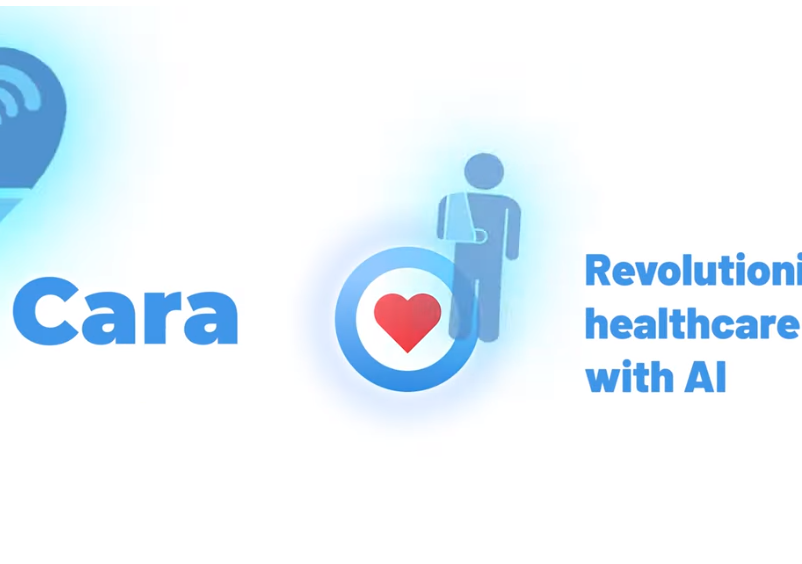
Editor’s note: Startup Spotlight, which focuses on emerging entrepreneurial companies in North Carolina, is part of WRAL TechWire’s Startup Monday lineup.
+++
RESEARCH TRIANGLE PARK – CareYaya has been taking the Triangle by storm since launching its initial pilot in Chapel Hill last year, benefiting in part to the exploding interest in AI over the past year with the rise of ChaptGPT and other tools.
The startup – at the cross-section between gig tool and healthcare – aims to tackle the caregiving crisis by connecting student caregivers with families in need. As of March of this year, the company had already worked with 800 families in the Triangle, and its leaders recently shared news of expansions into Charlotte as well as Georgia and Tennessee.
Now the company has a new way to help, and it’s calling her “Cara.”

Samples from Cara
Introducing Cara
“Cara” is an artificial intelligence tool being developed to support social workers, as well as other caregivers, with some of the more mundane and repeatable tasks of caregiving. CareYaya co-founders Gavry Eshet and Neal Shah explained the inspiration for Cara’s development.
“We’ve built a lot of relationships with social workers at Duke Health, UNC Health, etc. And they’re always overwhelmed,” said Eshet. “So, we thought that it could be a thing that a lot of people maybe aren’t focusing on, bringing new AI-enabled solutions to this workforce.”
Helping hands: Raleigh startup is addressing caregiver crisis with college students
According to Eshet, the company CTO, the Cara tool is using an OpenAlpaca as the underlying intelligence model, an open-source model based on OpenLLaMA, which is itself an open-source version of Meta’s LLaMA language model. The company started by training the model with transcripts and text data from social workers’ interactions with clients. They hope to continue to hone the model with more data and new types of content and resources gleaned over the course of the upcoming beta testing.
The initial goals of the project are simple: meal planning, medical documentation for common needs, and assistance with outreach to providers. The company is staying away from high-risk tasks and diagnostics by starting with a focus on simple workflows to facilitate care.
“There’s a lot of social workers and even nurses who constantly check in on people with chronic disease: Alzheimer’s, dementia, kidney failure, and other conditions,” said CEO Shah. “They’re helping people locate healthy food options. Sometimes they’re even helping people with Meals on Wheels, with Alzheimer’s, dementia care support, connecting them with nonprofits, connecting them with patient education. And we think a lot of this stuff could just be massively automated.”
According to Shah, Cara has the potential to streamline processes, making more time for personal impacts.
“A lot of health care providers are not really practicing at the top of their license,” explained Shah. “A very large amount of their time is spent on non-patient-facing applications.”

A Cara chat
Cara Care
Eshet is aware of the downsides of AI and the work to address these issues is ongoing. The model already has functionality built in to scrub personally-identifiable information during the initial prompt intake. They’re also hoping to use upcoming beta testing to figure out the gaps in effectiveness, especially as it relates to populations that are underserved by the responses.
The company aims to release the initial, closed beta for use by social workers at Duke Health on July 1. A further open beta phase for social workers across NC is planned for August 1, with a full launch targeted for October. The beta phase of the product will be available via the CareYaya website, with the goal of a mobile app by the official launch date. The company is also working on extending functionality to include multilingual options.
Study: NC is No. 3 for ChatGPT jobs – trainers gearing to meet talent demand
The hope is that a longer testing window will allow for faster iterations and improvements.
“It’s great to get that fast feedback,” said Eshet. “People that we can test this with in a safe environment where people are aware of the initial limitations. I think we’ll be able to refine it and turn it into a really broadly applicable product faster.”
The company is also very open to partnership and collaboration on the project.
“If somebody has ideas they want implemented since we’re already building it, we’d be happy to customize it to their needs,” said Shah. “I think there’s a huge opportunity for people to save time and improve care.”
Shah has seen the effort required of caregivers firsthand. He first watched his mother quit her job to care for her parents, before going through his own caregiving experience when his wife was diagnosed with cancer. He and Garvy feel strongly that Cara can use the amazing potential of AI to support people in these positions. The company has grant support from Atrium Health for advancing health equity and the hope is that Cara will be able to grow to one day support larger groups.
“Hopefully, if we put enough stuff out there that is making an impact and people are finding helpful there will be people who notice,” said Shah. “Just put something great out there that then the system will say ‘Hey, I really want this’.”



